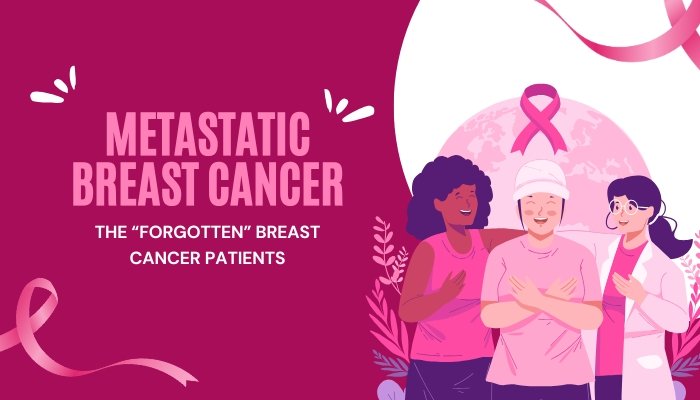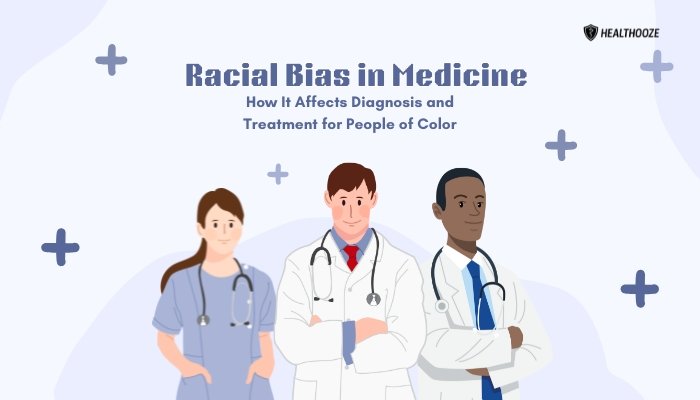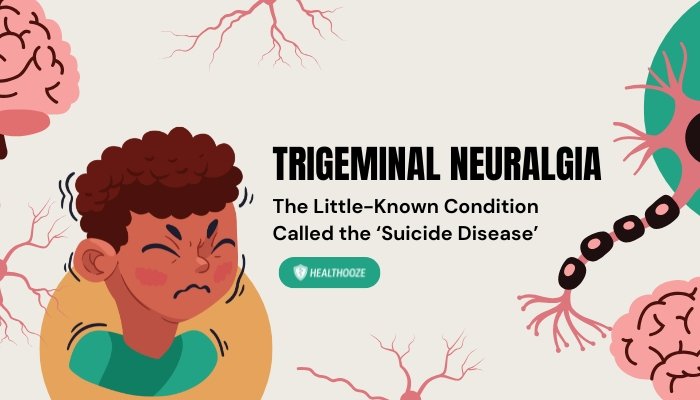Introduction
When people think of breast cancer, many envision a well-known narrative of early detection, localized tumors, and a roadmap leading to remission. However, metastatic breast cancer (MBC)—also known as Stage IV or advanced breast cancer—is a far more complex story.
It occurs when cancer cells from the breast spread to distant organs, such as the bones, liver, lungs, or brain. Though public awareness around early-stage breast cancer is relatively strong, women (and men) with metastatic disease often feel that their struggles remain overshadowed by the pink ribbons and success stories of earlier diagnoses.
This article explores how metastatic breast cancer differs from earlier stages, the obstacles patients face, and the latest developments in care that aim to extend life expectancy and improve quality of life.
Understanding Metastatic Breast Cancer
What Is Metastatic (Stage IV) Breast Cancer?
Metastatic breast cancer occurs when the primary tumor in the breast sheds cells that travel through the bloodstream or lymphatic system to set up secondary growths in other areas of the body. In many cases, this progression happens after a patient’s initial or recurrent diagnosis at earlier stages, but some patients are de novo metastatic—diagnosed with advanced disease from the start. Unlike early-stage breast cancer, MBC is considered incurable, though many patients live for years or even decades with ongoing therapies.
Why Does It Spread?
Breast cancer cells can break off from the main tumor and enter circulation, eventually colonizing distant tissues—particularly the bones, liver, lungs, or brain. The process depends on molecular factors of the tumor (e.g., HER2 expression, hormone receptor status) and overall body environment, but the exact “why” or “when” of metastasis is often unpredictable.
Common Sites of Metastases
- Bones: Often leading to pain, fractures, or increased calcium in the blood.
- Liver: May present as abdominal pain, elevated liver enzymes, or jaundice.
- Lungs: Persistent cough, shortness of breath, or chest discomfort.
- Brain: Headaches, neurological deficits, or seizures.
Why Metastatic Breast Cancer Is Often Overlooked
Public Perception Focused on “Early Detection”
For years, breast cancer campaigns and pink-ribbon movements have strongly emphasized mammograms and early interventions. While these efforts save many lives, they can inadvertently overshadow advanced patients who have no “cure” trajectory to celebrate.
Emotional and Social Challenges
Patients with metastatic disease grapple with fear and uncertainty, as treatments typically shift from aiming for cure to maintaining disease control or palliating symptoms. Many feel excluded from the “survivor” narrative heralded by pink-themed events—leading to a sense of alienation or being forgotten.
Insufficient Funding and Research Focus
Although metastatic breast cancer is responsible for the majority of breast cancer–related deaths, only a fraction of research funds specifically target advanced disease. Many novel therapies revolve around preventing recurrence, not necessarily treating existing metastases aggressively.
Symptoms and Daily Life with MBC
Physical Symptoms
- Chronic Pain: Bone metastases can induce persistent aches, interfering with sleep or mobility.
- Fatigue: Systemic disease and ongoing chemotherapy/radiation can cause profound exhaustion.
- Organ-Specific Symptoms: Vary based on metastasis location—e.g., difficulty breathing if lungs are involved.
Emotional and Mental Health
- Anxiety and Depression: The knowledge that the disease is incurable weighs heavily, along with unpredictability around progression and treatments.
- Treatment Burnout: Patients may alternate between multiple chemo lines, hormone therapies, or targeted drugs, often coping with side effects.
- Support Needs: Peer groups, counseling, or spiritual guidance help patients process grief, acceptance, and resilience.
Impact on Roles and Routines
- Work and Career: Regular hospital visits or fatigue can reduce capacity to maintain full-time employment, leading to financial strains.
- Family and Caregiving: Partners or children may assume caretaker roles, adjusting to changing household dynamics or tasks.
- Social Life: Physical discomfort or compromised immunity might limit social activities, reinforcing a sense of isolation.
Treatment Approaches and Advances
Systemic Therapies
Metastatic breast cancer typically demands systemic, body-wide treatments because the disease has spread beyond the primary site:
- Chemotherapy: Various regimens used sequentially, often changed once tumors develop resistance.
- Hormonal Therapy: For patients with ER/PR-positive tumors. Drugs like aromatase inhibitors, SERMs (e.g., tamoxifen), or SERDs (e.g., fulvestrant) can slow hormone-driven growth.
- Targeted Drugs:
- HER2-Positive: Agents like trastuzumab, pertuzumab, T-DM1, or newer HER2-targeted combos extend survival.
- CDK4/6 Inhibitors: For hormone receptor–positive, HER2-negative patients, these combined with endocrine therapy can stall progression.
- PARP Inhibitors: In BRCA-mutated metastatic breast cancers.
Local Treatments for Metastases
- Radiation Therapy: Helps relieve pain or reduce localized tumor burden, e.g., for brain or bone metastases.
- Surgery: Rarely used in MBC, but may ease symptoms from specific metastases (e.g., spinal cord compression).
- Ablation: Minimally invasive approaches (e.g., radiofrequency ablation) might reduce small metastases in the liver.
Emerging Therapies
- Immunotherapy: Checkpoint inhibitors (e.g., PD-1 or PD-L1 blockers) show promise in triple-negative metastatic breast cancer subsets.
- Antibody-Drug Conjugates: Precisely deliver chemo to tumor cells while sparing healthy tissue, with some new ADCs prolonging progression-free survival.
- Personalized/Precision Medicine: Comprehensive genomic profiling can detect actionable mutations or fusions in advanced disease, guiding off-label or trial-based targeted treatments.
Overcoming Barriers and Shifting Perceptions
Advocacy for MBC-Focused Research
Organizations like METAvivor or advanced breast cancer subgroups highlight that:
- MBC is not just “late-stage of the same disease” but requires distinct research, therapies, and trial endpoints.
- A portion of mainstream breast cancer funds must specifically address advanced disease.
Enhancing Quality of Life
- Palliative Care Integration: Symptom management, psychological support, and advanced care planning can begin alongside active oncological treatment, not just when curative options cease.
- Community and Peer Support: Online forums, local meetups, or counselor-led support groups connect those with similar experiences, alleviating isolation.
Modernizing Clinical Trials
- Adaptive Trial Designs: Incorporate biomarkers and real-time data for more agile, targeted testing.
- Global Collaboration: Multi-country consortia unify patient pools, enabling robust data on uncommon subtypes of metastatic breast cancer.
Living with Metastatic Breast Cancer
Strategies for Resilience
- Open Communication: Honest discussions with family about changing needs and priorities fosters unity in decision-making.
- Care Coordination: Combining multiple specialists—oncologist, palliative doctor, dietitian, mental health professional—helps manage the disease comprehensively.
- Setting Goals: Some patients adopt shorter milestones—next holiday, a graduation—to keep motivated and celebrate smaller triumphs.
Possible Outlook and Future
While metastatic breast cancer remains incurable, many individuals can achieve stable disease for extended periods with advanced therapies. Evolving science, gene-driven treatments, or novel immunotherapy might further transform MBC care within a few years, offering added time and improved daily functioning.
Conclusion
Metastatic breast cancer represents a challenging reality for thousands of women (and men) worldwide, with a unique set of medical, emotional, and societal hurdles. As research, clinical practices, and patient advocacy gradually shift, more attention—and funding—is directed toward advanced disease. Living with MBC demands integrated approaches addressing both immediate physical burdens (tumor growth, therapy side effects) and the overarching mental and emotional toll. Amid the uncertainties, renewed optimism arises from the rapid pace of drug development, collaborative trial designs, and the unwavering perseverance of patients themselves. By championing equitable resources for metastatic patients and fostering open, compassionate dialogues, we can redefine the narrative, ensuring that those with advanced disease receive not just empathy but also the best possible shot at sustained, meaningful living.
References
- O’Shaughnessy J. Extending survival in metastatic breast cancer. N Engl J Med. 2010.
- Cardoso F, Spence D, Mertz S, et al. Global analysis of advanced/metastatic breast cancer. Breast. 2018.
- Hortobagyi GN. Treatment of advanced (metastatic) breast cancer. N Engl J Med. 1998.
- http://www.metavivor.org/






